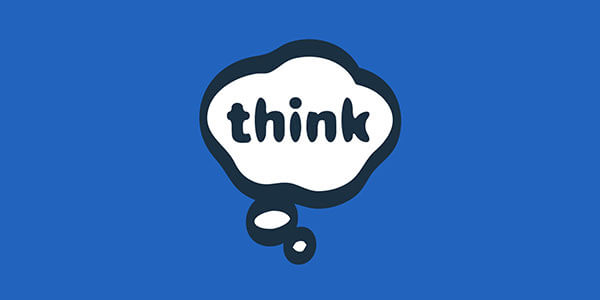A simple guide to work journaling

For years I began each January with the same goal: to finally start journaling. I would write an entry or two, maybe a week’s worth, and then the habit would evaporate. Empty notebooks would pile up. Something wasn’t sticking. Eventually, I found my journaling groove by making it a part of my morning coffee routine, and over time I began to love it. I felt lighter, less prone to overthinking things, ready to start the day with a clear mind.
When working from home became the norm, the line between journaling about my personal and professional lives began to blur. I found myself writing a lot about my projects. Team interactions. Frustrations. A-ha moments. As a designer whose work is mostly visual, journaling about my thought processes felt like flexing a muscle I hadn’t used in way too long. Over time I realized that work journaling could provide a lot of the same benefits as personal journaling—and some unique ones, too.
Getting started: what to write about
OK. You’re sold on the idea. You have your work journal (for me, a Google Doc) and you’re ready to dive in. A blank page is begging you to fill it up. Where to begin? When in doubt, start with one of these:
- What did you accomplish today?
- What blockers did you run into?
- What was annoying?
- What made you smile?
As with personal journaling, don’t worry about things like grammar or word choice or even using full sentences. Just empty your mind onto the page.
Add in screenshots of what you’re working on. Point out things you like and dislike about your designs or research findings. Paste in any feedback you’ve received from colleagues or managers, be it positive or negative. Jot down questions that arise as you’re mind-dumping—you can save these for later.
These are just suggestions. Once you start writing, subconscious feelings and ideas may bubble to the surface. Go with the flow. Tweak your journal to fit your unique needs, but try to stay within the parameters of your daily tasks and interactions. The simple act of writing about your work will pay off in time.
Dos and don’ts of work journaling
All of this sounds great, so what’s the catch? While there isn’t much downside to work journaling, there are a few things to keep in mind:
Don’t overload yourself
I’m not advocating adding extra work to your already full plate. I carve out 5-10 minutes on my calendar at the end of each day to write in my work journal. I’ve seen others do weekly retrospectives on Friday afternoons. Find a cadence that works for you.
Don’t dwell on the negative
If you’re having a particularly bad day, it can be easy to spiral into a lengthy, emotional journal entry. And that’s fine! But you should always try to follow up with steps you’re going to take to improve the situation. If your journal becomes a place for you to stew in negative feelings day after day, it can actually make the situation worse.
Do cut yourself some slack
Work journaling can be a beneficial habit, but it’s not something you should break your back over. Don’t stress about missing a day or even a week of entries. If the habit isn’t sticking, try journaling at a different time or in a different location. Ultimately, this is for you. After a year or two of consistent writing, you’ll be able to look back on your first few entries and see how far you’ve come, how much your work has improved. And that’s the most rewarding part of all.
The boosts and benefits of reflecting
Have you ever collected spare coins in a piggy bank? A few pennies and quarters each week add up to a nice chunk of change by the end of the year. The same thing happens when you build your work journal day by day. Over time, you’ll have created a living, breathing document that chronicles all of your professional accomplishments. Think of it as a mini reference library you can return to again and again.
You remember project successes and challenges
Projects can end on high (or not-so-high) notes. It can be easy to forget how you felt at the beginning or middle of an engagement, especially if it spanned months or years. When it’s time for a team retrospective, colleagues may be racking their brains to remember milestones or pain points. Not so with a work journal! Look back over your entries to find specific wins or losses that may have otherwise been forgotten.
You see your contributions clearly
Similarly, when it comes time for manager one-on-ones or performance reviews, it’s really helpful to have amassed a pile of evidence of your successes all in one place. Rather than digging through emails and Slack messages to remember specifics, you can pull up journal entries that highlight your contributions. Sometimes I’ll include screenshots of positive interactions I’ve had in my work journal—feedback like “good job” and “I appreciate you” that, while seemingly minor at the time, add up to a bigger picture of the impact you’ve had on others.
You improve your well-being at work
Keep in mind that work journaling provides the same psychological benefits as personal journaling. It can improve your memory and increase mindfulness. It may even help strengthen your immune system. Channeling negative emotions onto the page is cathartic, and it prevents you from taking your frustrations out on colleagues. Writing about your work will also help you recognize patterns in the way you think, react, and process information. It will boost your creativity. Ultimately, journaling is a form of therapy—a way to better understand yourself.
Keep going: work journaling for the win
Now that you know where to start—don’t let up! Taking time to reflect today will reap benefits in the weeks and months to come. Work journaling helps you de-stress during hectic days and allows you to create a safe space to work through your professional development goals. No matter how you choose to journal, you’re setting yourself up for success through reflection—by design.



